|
 Secure Site
Secure Site
|
 |
Archive for the 'Zen Alarm Clock' Category
Research published in the last two years shows that certain slow activities–like gentle yoga or gardening–can reduce your stress level and blood pressure and improve your body’s ability to regulate sugar. Past studies have shown that other habits like meditation can help reduce chronic pain and enhance mental clarity. The first step to finding “slowness”is to clear some room in your life–watch less TV or spend less time browsing at the mall. “Jettison the clutter that clogs up your schedule,” says Carl Honoré, author of In Praise of Slowness (HarperOne, 2004). “When you focus on the things that are important at work or at home you can enjoy those things more,”he says. You can also take a more relaxed approach to the things you already do and adopt new habits that require mindfulness. “It’s one thing to say you’re going to slow down, but a slow hobby helps you put those words into practice,” says Honoré. To get you started we’ve come up with seven ways to destress and reenergize.
 gardening is a great mindfulness practice that cultivates stillness of mind 1. Become a Gardener
Caring for flowering plants may help you relax and get grounded. In 2004, researchers at Japan’s Utsunomiya University found repotting plants lowered fatigue and promoted physiological relaxation in study participants, and that working with flowers seemed to have a stronger positive effect than working with nonflowering plants.
HEALTH BENEFITS Research shows that exposure to plants–and even just looking at them–can reduce blood pressure, increase concentration and productivity, and help you recover from illness, says Andy Kaufman, Ph.D., assistant professor of tropical plant and soil sciences at the University of Hawaii in Honolulu. He cites a classic 1984 study, published in Science, which showed that even the view of a green garden helped surgical patients recovering from gall bladder surgery. Among a group of 46 patients in a Pennsylvania hospital, the 23 who had rooms with windows facing greenery had shorter postoperative stays and needed fewer pain–relieving analgesics than the 23 whose windows faced a brick wall.
GETTING STARTED If you live in an apartment or don’t have much room to garden, invest in the EarthBox (earthbox.com), a self–watering container garden that comes with potting soil and fertilizer. “Even if you have a brown thumb, you can grow things [in it],”says David Ellis, American Horticulture Society spokesperson. You could also join a community garden; visit ahs.org, the American Horticulture Society’s website, for more info.
 yoga helps to slow us down 2. Practice Slow Yoga
Slow yoga emphasizes one drawn–out breath for each movement you make. Like tai chi, it uses many repetitive flowing moves. “When you practice slow yoga, you create more awareness between mind and body,”says Beth Shaw, founder of Yoga Fit Training Systems in Los Angeles. This creates a deep sense of stillness and helps develop patience and lower stress, she adds.
HEALTH BENEFITS Last year, researchers in Sweden and India showed that practicing yoga can reverse the negative effects of high blood pressure, obesity, and high blood sugar. The studies, published in the journal Diabetes Research and Clinical Practice, showed reduced waist circumference, blood pressure, blood sugar, and triglycerides (the chemical form of fat cells) and higher HDL (so–called good cholesterol) levels in a control group that practiced yoga versus a placebo group.
GETTING STARTED To find a Slow Yoga class near you visit yogafit.com or inquire at your local yoga studio. You might also consider restorative or yin yoga, two other gentle forms of the practice.
 Take a nap 3. Take a Nap
You snooze, you win, according to a Harvard study published last year in The Archives of Internal Medicine. Researchers revealed that people who regularly napped at least three times a week for an average of 30 minutes had a 37 percent lower risk of heart attack than those who didn’t nap. “It shows that napping is an important preventive strategy just like regular exercise, eating right, and not smoking,”says Sara C. Mednick, Ph.D., author of Take a Nap! Change Your Life (Workman, 2006).
HEALTH BENEFITS A daily nap also boosts serotonin, says Mednick, which may lead to improved memory and performance. Napping can even contribute to weight loss, according to a study in the American Journal of Physiology, Endocrinology, and Metabolism in 2007. That study looked at hormone levels in 41 men and women who were part of a seven–day sleep–deprivation experiment. Those allowed to nap for two hours following a night without any sleep showed a significant drop in cortisol, a hormone related to high levels of stress, and a complement of growth hormone, which helps regulate insulin and fat storage. Researchers concluded that a midafternoon nap improves alertness and performance and reverses the negative metabolic effects of sleep loss.
GETTING STARTED The best time to nap is between 1 p.m. and 3 p.m., but a 15– to 20–minute power nap at any time can help. Set your Zen Alarm Clock for 20 minutes. Close the office door and take a snooze, or find a quiet place where you feel safe. Nap on weekends, Mednick says. “Just don’t use the weekend to catch up on sleep lost in the week.”Check with your doctor about napping if you’re being treated for insomnia.
4. Start a Slow Hobby
 learning to paint Hobbies that require mindful, solitary activity–such as knitting, painting, sculpting, crocheting, or quilting–can act as a brake on your hectic pace.
HEALTH BENEFITS “Slow hobbies help you cultivate the lost art of concentration and being in the moment. They have a meditative quality to them,”says author Carl Honorè. “And that calming effect goes beyond the act itself. Maintaining that inner stillness enables you to negotiate the fast–moving waters of the rest of your day.”
GETTING STARTED Sixty–four percent of people who knit or crochet say they use these crafts to help them reduce stress and relax, according to the Craft Yarn Council of America. Visit craftyarncouncil.com for information. To learn about drawing, visit drawspace.com. Check with a local college or community center for other craft classes.
5. Eat Slowly
Eating too fast creates stress in the body, says nutritionist Marc David, author of The Slow Down Diet (Healing Arts Press, 2005). That causes a spike in cortisol and insulin, which in turn diminishes your ability to burn calories and makes you more likely to gain weight. Eating quickly also leads to overeating. “The brain demands more food if it doesn’t have time to register its needs for taste, aroma, and satisfaction,”says David.
HEALTH BENEFITS Taking time to eat creates a relaxation response, which means you’ll have fewer digestive complaints and your body will be able to take in the nutrients it needs. Plus “we make better food choices, and we know when to stop,”he adds.
GETTING STARTED To ease the pace, double the time you spend on your meals; for example, if you usually eat breakfast in five minutes, stretch it out to ten. “Focus on your food: Taste it, enjoy it, notice it, savor it,”says David. “Find relaxed time between bites by slowing down your internal conversation. Let go of any sense of urgency, and allow the moment to be sensual.”The cooking process can help you slow down too, says David. “Instead of microwaving something, make a soup from scratch.”
6. Do One Thing at a Time
A lot of us believe we get more done by multitasking. But research at the University of Michigan published in the Journal of Experimental Psychology in 2001, shows the opposite is true. “If you concentrate on one task at a time, you get more done faster and make fewer mistakes,” says David E. Meyer, director of the Brain, Cognition, and Action Laboratory at the University of Michigan.
HEALTH BENEFITS Taking on chores one at a time reduces chronic stress and protects your short–term memory, which comes under fire if the brain is overtaxed.
GETTING STARTED To curb outside distractions and focus better, set aside time when you can concentrate on one activity from start to finish. For example, check e–mail once an hour and turn off your instant messaging; let your phone messages go to voice mail and only check them occasionally throughout the day.
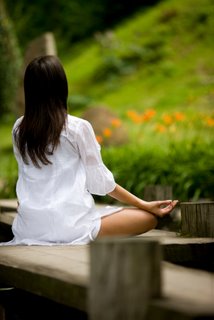 practice meditation in order to slow down 7. Meditate
“Meditation teaches us to focus,”says Steven Hartman, director of professional training at the Kripalu Health and Yoga Center (kripalu.org) in Stockbridge, Mass. “All day your mind is chattering. When you meditate, you can hear your own inner wisdom.”
HEALTH BENEFITS Studies have shown that practicing meditation also improves blood pressure, fortifies the immune system, and promotes a sense of well–being. “A daily meditation practice can bring body, breath, mind, and spirit into balance,”says Hartman.
GETTING STARTED Check out a program like Transcendental Meditation. (See tm.org.) Or begin at home: “Put an egg timer on and stay with your breath for just two and a half minutes,”says Hartman. “Keep your spine tall and straight and allow the breath to be natural.”If you’re seated on the floor, a cushion can raise your pelvis and bring your spine into a natural position. As you get comfortable with the practice, you can increase your time to 15 or 30 minutes a day.
adapted from Natural Health Magazine, by Chrystle Fiedler
One of the ultimate Zen like experiences is waking-up from a great slumber refreshed and energized. Your mind and body are harmoniously one, both alert and focused. Having a refreshed mind and body are two keys to a natural and Zen lifestyle. Waking up in the morning should not be a loud and abrupt awakening, but rather it should be a peaceful positive experience. The right natural alarm clock can transition your deep and tranquil sleep into a serene start to consciousness. Imagine a long-resonating Tibetan bell-like chime waking you up to a beautiful morning experience.
The right alarm clock can be the most beneficial investment for you. With our Now & Zen natural alarm clock you are awakened more gradually and thus more naturally. Now & Zen is focused on creating a naturalistic lifestyle, and our clocks are an example of our philosophy.
 Zen Meditation Timers with Soothing Chime Now & Zen – Soothing Chime Alarm Clock & Timer Store
1638 Pearl Street
Boulder, CO 80302
(800) 779-6383
Posted in Chime Alarm Clocks, intention, Meditation Timers, Meditation Tools, mindfulness practice, Natural Awakening, Now & Zen Alarm Clocks, sleep, Sleep Habits, wake up alarm clock, Well-being, yoga, Yoga Timer, Yoga Timers by Now & Zen, Zen Alarm Clock, Zen Timers
 meditating on a rock At Harvard Medical School’s Mind-Body Medical Institute, Dr. Herbert Benson and colleagues teach a technique they call the Relaxation Response, which is a demystified system of meditation, modeled directly on Transcendental Meditation (TM), a type of yogic mantra meditation. Numerous studies have shown that when you quiet the mind with these techniques, a variety beneficial physiological responses—including reduced heart rate, breathing rate, blood pressure, and levels of stress hormones—result, benefiting conditions from migraines to high blood pressure to infertility.
adapted from Yoga Journal, Yoga Therapy and the Mind-Body Connection, Part 1 by Timothy McCall, M.D.
Use our unique “Zen Clock” which functions as a Yoga & Meditation Timer. It features a long-resonating acoustic chime that brings your meditation or yoga session to a gradual close, preserving the environment of stillness while also acting as an effective time signal. Our Yoga Timer & Clock can be programmed to chime at the end of the meditation or yoga session or periodically throughout the session as a kind of sonic yantra. The beauty and functionality of the Zen Clock/Timer makes it a meditation tool that can actually help you “make time” for meditation in your life. Bring yourself back to balance.
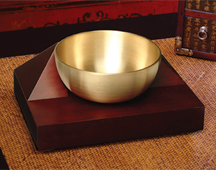 Singing Bowl Meditation Timer from Now & Zen, Inc. Now & Zen’s Singing Bowl Meditation Timer Store
1638 Pearl Street
Boulder, CO 80302
(800) 779-6383
Posted in intention, wake up alarm clock, Well-being, yoga, Zen Alarm Clock
 How to have more energy in the morning It’s often hard to find the inspiration to get out of your nice, comfortable bed when you’re still so tired. But according to Kundalini yoga, a built-in supply of energy lies dormant at the root of the spine, like a bulb that rests underground, waiting for a cue to bloom. By accessing this vitality, you’ll have the charge you need to fire up your day — without having to resort to a double latte.
“When you awaken your Kundalini energy and get it flowing up your spine,” says Maya Fiennes, a London yoga teacher and star of the DVD “Kundalini Yoga to Detox and Destress,” “you become alert and uplifted instead of sluggish and stressed.” We worked with Fiennes to develop this series of simple moves that stretch and strengthen the spine, increase vitality, reduce tension, release impurities, and improve focus — everything you need to face what lies ahead.
Camel Ride (pictured)
Targets
The lower spine.
What It Does
Releases lower-back tension, opens the hips, stimulates the digestive and immune systems, and promotes mental focus. “When you flex the spine,” says Fiennes, “you flex the mind.”
How to Do It
Sit cross-legged on the floor with your hands resting on your ankles. Bring your ribs and chest forward, gently arching your back, as you inhale. Then move the rib cage backward and round your lower spine as you exhale. Keep your neck relaxed and your chin parallel to the ground. Continue doing this exercise in unison with your breath for about two minutes, set your zen timer to repeat every 2 minutes and repeat six times.
Sufi’s Circle
Targets
The middle spine.
What It Does
Creates more space in the torso and encourages the lungs to expand; further stimulates digestion; soothes the nervous system. “The spiral is a familiar pattern in nature,” says Fiennes. “It’s very calming to move this way.”
How to Do It
Inhale and rotate your ribs forward and to the right, then exhale as you continue back and to the left, drawing a big circle with your chin and rib cage. Your spine will arch slightly and then round throughout the exercise. Rest your hands on your knees, using them for leverage. After two minutes, reverse and repeat for two more minutes.
Spinal Twist
Targets
The upper spine.
What It Does
Promotes detoxification; stimulates the lymphatic system; encourages energy to flow throughout the spine.
How to Do It
Sit with your hands on your shoulders, elbows parallel to the ground, and shoulders relaxed. As you inhale, twist your torso, shoulders, and head to the right. Exhale and twist to the left. Alternate between the right and left sides, gradually increasing your pace. After a minute, make the “okay” symbol with your fingers and begin to slowly straighten your arms with each twist until they are straight above your head. To finish, bring your hands into a prayer position and feel the energy coursing along your spine.
One of the ultimate Zen like experiences is waking-up from a great slumber refreshed and energized. Your mind and body are harmoniously one, both alert and focused. Having a refreshed mind and body are two keys to a natural and Zen lifestyle. Waking up in the morning should not be a loud and abrupt awakening, but rather it should be a peaceful positive experience. The right natural alarm clock can transition your deep and tranquil sleep into a serene start to consciousness. Imagine a long-resonating Tibetan bell-like chime waking you up to a beautiful morning experience.
The right alarm clock can be the most beneficial investment for you. With our Now & Zen natural alarm clock you are awakened more gradually and thus more naturally. Now & Zen is focused on creating a naturalistic lifestyle, and our clocks are an example of our philosophy.
adapted from Body + Soul, March 2008 by Kate Hanley
 Solid maple and walnut clocks use chimes to emulate Tibetan bells to wake you
Now & Zen’s Natural Alarm Clock Store
1638 Pearl Street
Boulder, CO 80302
(800) 779-6383
Posted in intention, mindfulness practice, Natural Awakening, sleep, wake up alarm clock, Well-being, yoga, Zen Alarm Clock
 Feng Shui Tips If insomnia is a problem, don’t overlook the decor of your bedroom. Indeed, the legendary healer Hazel Parcells (1889-1996) once helped a sleepless client by insisting that she totally redo the room she slept in. “It had been decorated for years in a jungle motif,” says Joseph Dispenza, author of Live Better Longer: The Parcells 7-Step Plan for Health and Longevity (HarperCollins, 1997). “Imitation zebra skin sheets and drapes, wall hangings of monkeys in trees, and all of it set against a background of tropical colors of red, orange, and bright green. ‘There’s your problem,’ said Dr. Parcells, ‘You’re trying to get some sleep while your bedroom is engaged in monkey business all night!'”
Ideally, your bedroom should be restful and not used for anything but sex and sleep. Banish all paperwork and the television to other rooms, keeping clutter to a minimum. “Keep on hand the things you need while in bed but put away everything else,” says Donna Stellhorn, the owner of Moonrise Books in Albuquerque, New Mexico, and an expert in feng shui techniques. “The simpler the better,” she adds.
If that still doesn’t work, consider these tips:
Furniture, plants, and other objects should never loom or hang over the bed; they can threaten your subconscious mind. Plants should also be alive and green, not dry (suggesting death or morbidity) or spiky (threatening).
As for the bed, place it so your head is either facing north or east—experts disagree on which is best—in a spot where you will not be startled if a family member enters. And don’t let junk accumulate under the bed. It can disturb the flow of chi (energy) and affect your sleep.
Color is important. “Best is pale pink, peach, or lavender if you are healthy, but pale green or blue if you’ve been ill or low in energy,” says Stellhorn. Avoid bright colors and busy patterns.
Dr. Parcells also recommended natural—not synthetic—sheets, blankets, and pillows, the right room temperature, good air circulation, and few mirrors, which create cacophonous visual images.
Rather than a loud, buzzing alarm, greet the morning with a Zen Clock with Chime, Tibetan Bowl Clock, chirping birds, relaxing music, an energizing mist of peppermint oil, or a light that brightens gradually to imitate the rising sun.
Boulder, Colorado—an innovative company has taken one of life’s most unpleasant experiences (being startled awake by your alarm clock early Monday morning), and transformed it into something to actually look forward to. “The Zen Alarm Clock,” uses soothing acoustic chimes that awaken users gently and gradually, making waking up a real pleasure.
What makes this gentle awakening experience so exquisite is the sound of the natural acoustic chime, which has been tuned to produce the same tones as the tuning forks used by musical therapists. According to the product’s inventor, Steve McIntosh, “once you experience this way of being gradually awakened with beautiful acoustic tones, no other alarm clock will ever do.”
adapted from Yoga Journal Magazine, by Sally Eauclaire Osborne
 Chime Alarm Clock, a Natural Sound Alarm Clock Now & Zen – The Gentle, Chime Alarm Clock Store
1638 Pearl Street
Boulder, CO 80302
(800) 779-6383
Posted in Feng Shui, sleep, Sleep Habits, wake up alarm clock, Zen Alarm Clock, Zen Timers
 can meditation reduce stress? Dhyana heyah tad vrttayah.
Meditation removes disturbances of the mind. (Yoga Sutra II.11)
Research shows that meditation can help people with anxiety disorders. Philippe Goldin, director of the Clinically Applied Affective Neuroscience project in the Department of Psychology at Stanford University, uses mindfulness meditation in his studies. The general practice is to become aware of the present moment—by paying attention to sounds, your breath, sensations in your body, or thoughts or feelings—and to observe without judgment and without trying to change what you notice.
Like most of us, the participants in Goldin’s studies suffer from all sorts of disturbances of the mind—worries, self-doubt, stress, and even panic. But people with anxiety disorders feel unable to escape from such thoughts and emotions, and find their lives overtaken by them. Goldin’s research shows that mindfulness meditation offers freedom for people with anxiety, in part by changing the way the brain responds to negative thoughts.
In his studies, participants take an eight-week mindfulness-based course in stress reduction. They meet once weekly for a class and practice on their own for up to an hour a day. The training includes mindfulness meditation, walking meditation, gentle yoga, and relaxation with body awareness as well as discussions about mindfulness in everyday life.
Before and after the intervention, participants have their brains scanned inside an fMRI (or functional MRI) machine, which looks at brain activity rather than the structure of the brain, while completing what Goldin calls “self-referential processing”—that is, thinking about themselves. An fMRI scanner tracks which brain areas consume more energy during meditation and, therefore, which regions are more active.
Ironically, the brain-scanning sessions could provoke anxiety even in the calmest of people. Participants must lie immobilized on their back with their head held in the brain scanner. They rest their teeth on dental wax to prevent any head movement or talking. They are then asked to reflect on different statements about themselves that appear on a screen in front of their face. Some of the statements are positive, but many of them are not, such as “I’m not OK the way I am,” or “Something’s wrong with me.” These are exactly the kinds of thoughts that plague people with anxiety.
The brain scans in Goldin’s studies show a surprising pattern. After the mindfulness intervention, participants have greater activity in a brain network associated with processing information when they reflect on negative self-statements. In other words, they pay more attention to the negative statements than they did before the intervention. And yet, they also show decreased activation in the amygdala—a region associated with stress and anxiety. Most important, the participants suffered less. “They reported less anxiety and worrying,” Goldin says. “They put themselves down less, and their self-esteem improved.”
Goldin’s interpretation of the findings is that mindfulness meditation teaches people with anxiety how to handle distressing thoughts and emotions without being overpowered by them. Most people either push away unpleasant thoughts or obsess over them—both of which give anxiety more power. “The goal of meditation is not to get rid of thoughts or emotions. The goal is to become more aware of your thoughts and emotions and learn how to move through them without getting stuck.” The brain scans suggest that the anxiety sufferers were learning to witness negative thoughts without going into a full-blown anxiety response. Research from other laboratories is confirming that mindfulness meditation can lead to lasting positive changes in the brain. For example, a recent study by Massachusetts General -Hospital and Harvard University put 26 highly stressed adults through an eight-week mindfulness-based course in stress reduction that followed the same basic format as Goldin’s study. Brain scans were taken before and after the intervention, along with participants’ own reports of stress. The participants who reported decreased stress also showed decreases in gray -matter density in the amygdala. Previous research had revealed that trauma and chronic stress can enlarge the amygdala and make it more reactive and more connected to other areas of the brain, leading to greater stress and anxiety. This study is one of the first documented cases showing change ocurring in the opposite direction—with the brain instead becoming less reactive and more resilient.
Together, these studies provide exciting evidence that small doses of mental training, such as an eight-week mindfulness course, can create important changes in one’s mental well-being.
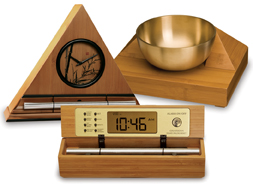 Zen Meditation Timers and Clocks - Boulder, CO Our Zen Meditation Timer’s acoustic 6-inch brass bowl-gong clock is the world’s ultimate alarm clock, practice timer, and “mindfulness bell.”
It fills your environment with beautifully complex tones whenever it strikes. In the morning, its exquisite sounds summon your consciousness into awakening with a series of subtle gongs that provide an elegant beginning to your day. It also serves as the perfect meditation timer.
adapted from Yoga Journal, by Kelly McGonigal
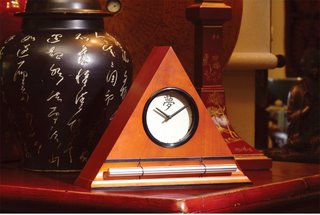 meditation tools and gentle alarm clocks Now & Zen’s Meditation Timer & Alarm Clock Shop
1638 Pearl Street
Boulder, CO 80302
(800) 779-6383
Posted in Chime Alarm Clocks, intention, Meditation Timers, Meditation Tools, mindfulness practice, Well-being, Zen Alarm Clock, Zen Timers
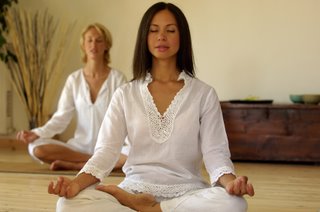 mediation As the evidence for the benefits of meditation grows, one of the most important outstanding questions is, How much is enough? Or, from the perspective of most beginning meditators, How little is enough to see positive change?
Researchers agree that many of the benefits happen early on. “Changes in the brain take place at the very beginning of learning,” Luders says. And many studies show change in a matter of weeks, or even minutes, among inexperienced meditators. But other studies suggest that experience matters. More practice leads to greater changes, both in the brain and in a meditator’s mental states. So while a minimal investment in meditation can pay off for your well-being and mental clarity, committing to the practice is the best way to experience the full benefits.
Luders, who was a lapsed meditator when she started her research, had such a positive experience being around seasoned meditators that she was motivated to come back to the practice. “It’s never too late,” Luders says. She suggests starting small and making meditation a regular habit. “The norm in our study was daily sessions, 10 to 90 minutes. Start with 10.”
If you do, you may discover that meditation has benefits beyond what science has revealed. Indeed, it will take time for science to catch up to the wisdom of the great meditation teachers. And even with the advances in brain technology, there are changes both subtle and profound transmitted only through direct experience. Fortunately, all you need to get started is the willingness to sit and be with your own body, breath, and mind.
adapted from Yoga Journal, by Kelly McGonigal
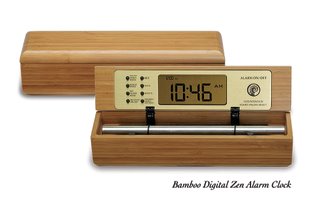 Bamboo Meditation Timer & Gentle Alarm Clock - Boulder, CO The Bamboo Digital Zen Clock’s long-resonating Tibetan bell-like chime makes waking up a beautiful experience – its progressive chimes begin your day with grace. When the clock’s alarm is triggered, the acoustic chime bar is struck just once … 3-1/2 minutes later it strikes again … chime strikes become more frequent over 10 minutes … eventually striking every 5 seconds until shut off. As they become more frequent, the gentle chimes will always wake you up – your body really doesn’t need to be awakened harshly, with a Zen Clock you’re awakened more gradually and thus more naturally. Unlike artificial recorded sounds coming out of a tiny speaker in a plastic box, natural acoustic sounds transform your bedroom or office environment.
The Digital Zen Clock also serves as a countdown and interval timer for yoga, meditation, bodywork, etc.; and it can also be set to chime on the hour as a tool for “mindfulness.”
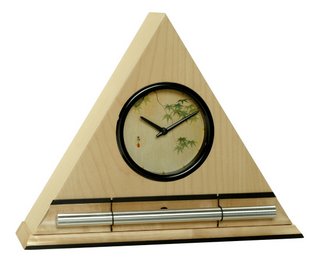 Meditation Clocks and Timers from Now & Zen Now & Zen’s Meditation Timer & Alarm Clock Shop
1638 Pearl Street
Boulder, CO 80302
(800) 779-6383
Posted in intention, Meditation Timers, Meditation Tools, mindfulness practice, Well-being, zen, Zen Alarm Clock, Zen Timers
 The Dream-Health Connection Physicians in early Egypt and ancient Greece encouraged people to recall their dreams when seeking medical advice. Mexican and Native American shamans have long considered dream interpretation important for both healing and spiritual awareness. Tibetan medicine views dream work as a path to self-discovery, an awareness that can help create an inner balance — and inner balance contributes to good health.
The Dream-Health Connection
Indeed, the study of dreams in relation to health is gaining acceptance in the scientific community. One study reveals that the role of REM sleep and noting dream variables may be significant in helping patients gain quicker remission from marital separation-related depression (Psychiatry Research, 1998, vol. 80). Other research finds that dream content reflects waking life stressors in people with insomnia. Several studies tracked cancer patients’ dream series and reported that their dreams may have pointed to early cues for the presence of the disease process.
Katherine O’Connell, Ph.D., a clinical psychologist, dream analyst and founder of the Dream Institute in Santa Cruz, Calif., says that “listening to dreams can save your life.” She notes that dreams not only reveal symbols for health issues that need to be resolved, but they often reveal the herbal remedy for the problem — a method of medical dream work that dates back to ancient Egypt and Greece. For example, O’Connell finds that her clients often dream of flowers or herbs that are traditionally used to treat the ailments their physicians diagnose.
In her dream-work journey, O’Connell has studied dream medicine with Tibetan lamas and researched 3,500-year-old Egyptian homeopathic remedies used for dream recall. Through the process, she has also collected more than 5,000 dreams — her own and those of clients — for analysis.
O’Connell believes that viewing your dreams as a series is the best way to understand the complete picture of your physical and psychological health. She suggests writing your dreams down, then reviewing common threads that run through them. “I see dream work as a good mystery story with many chapters,” she says. “With each chapter, we gain more clues along the way.”
Cultivating Dream Awareness
To access the clues in your dreams, start with your knowledge of yourself. While dream symbol books can serve as loose guides, dream interpretation is really an individual matter. For example, the color green may represent money to your spouse but symbolize healing energy to you. Likewise, a spider can be your personal symbol of creativity whereas it may signal a venomous threat to someone else; similar dream images often have different interpretations for different people. So it’s important to tap into your own associations, feelings and intuition about your dream symbols. “We have such innate wisdom. We must remember to trust ourselves,” O’Connell says.
Want to be more in touch with your dreams? ASD offers the following tips:
- Remind yourself to remember your dreams before you fall asleep.
- Keep a pad of paper and pen or tape recorder by your bedside. As you awaken to your chiming Zen Alarm Clock , try to move as little as possible and try not to think right away about your upcoming day. Instead, immediately write down your dreams and dream images, as they can fade quickly if not recorded.
- Influence your dreams by giving yourself pre-sleep suggestions. Before going to bed, write down your agenda. Or say aloud what you want to know to strengthen the conscious-subconscious dream connection.
- Forgo taking alcohol or stimulants such as coffee or caffeinated tea before bed, as these substances interfere with REM sleep. Also, try taking a warm bath with a few drops of chamomile or cedar essential oil (first diluted in a carrier oil such as almond or walnut), or try practicing a few minutes of meditation to clear your mind for restful sleep and clearer dreams. Dreams not only have the potential to enhance your health but, as Jungian analyst Marie-Louise von Franz says, “Dreams show us how to find meaning in our lives, how to fulfill our own destiny and how to realize the greater potential of life within us.”
Sweet dreams.
adapted from Delicious Living, October 2000 by Deborahann Smith
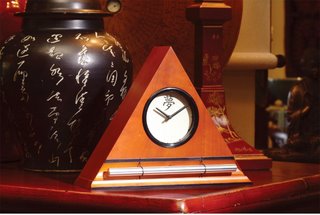 Zen Alarm Clocks with a progressive chime that doesn't interrupt your dreams Now & Zen – The Zen Alarm Clock Shop
1638 Pearl Street
Boulder, CO 80302
(800) 779-6383
Posted in Dreams, Japanese Inspired Zen Clocks, Natural Awakening, sleep, Sleep Habits, Zen Alarm Clock
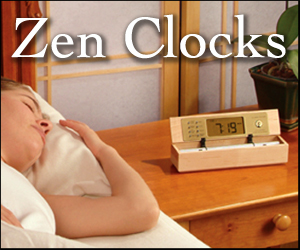 Tips for better sleep If you’ve already managed to figure out at last, how tofall asleep, but you’re having trouble getting goodsleep through the night (i.e. tossing, turning , waking up more than once), this article will tell you what you can do to ensure a peaceful night’s slumber!
Get on schedule. Varying your sleeping times by more than an hour can severely disrupt your sleep quality by “advancing the sleep phase”. For example, let’s say you normally wake up at 6 a.m. on weekdays to get to work, so you get to bed around 10 p.m. because that’s when you start to feel sleepy (and it’s also a good time to ensure 8 hours of sleep). If, on the weekend, you sleep in until 9 a.m., you probably won’t be able to fall asleep that night until 1 a.m. again. In other words, your body thrives on running on a routine; erratic sleeping sessions will interfere with your internal “biological clock”. For some people, and depending on work and routine, a very short rest in the afternoon (the Spanish call it the siesta) could help alleviate drowsiness some people experience during the day.
But make sure not to oversleep. By choosing the most soothing alarm clock to help you wake more naturally. Check out The Zen Alarm Clock with Chime by Now & Zen, Inc. – Boulder, Colorado.
What makes this gentle awakening experience so exquisite is the sound of the natural acoustic chime, which has been tuned to produce the same tones as the tuning forks used by musical therapists. According to the product’s inventor, Steve McIntosh, “once you experience this way of being gradually awakened with beautiful acoustic tones, no other alarm clock will ever do.”
adapted from Wikihow.com
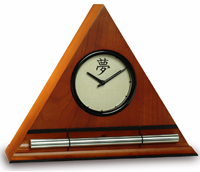 Zen Clocks for a Gradual Awakening with Chimes Now & Zen Headquarter Store
Chime & Gong Alarm Clocks, for a Natural Awakening
1638 Pearl Street
Boulder, CO 80302
(800) 779-6383
Posted in Chime Alarm Clocks, Natural Awakening, wake up alarm clock, Zen Alarm Clock
 wake up without an alarm clock Envision your wake-up time. As you lie in bed, think about the time at which you want to wake. Visualize a clock with that time on it, and visualize yourself getting up at that time. You may even find it helpful to tell yourself out loud, “I will wake up at (the desired time).” While this may sound silly, controlled experiments have revealed that many people can use these techniques to successfully and regularly awaken at the correct time without using an alarm or other external trigger. How the brain manages to keep track of the hours is unknown.
Or choose an Alarm Clock that doesn’t have a shrill, beeping sound like The Zen Alarm Clock by Now & Zen, Inc.
Our Zen Timepiece’s acoustic 6-inch brass bowl-gong clock is the world’s ultimate alarm clock, practice timer, and “mindfulness bell.”
It fills your environment with beautifully complex tones whenever it strikes. In the morning, its exquisite sounds summon your consciousness into awakening with a series of subtle gongs that provide an elegant beginning to your day. Once you experience the Zen Timepiece’s progressive awakening, you’ll never want to wake up any other way. It also serves as the perfect meditation timer. Available in 5 wood styles, including bamboo.
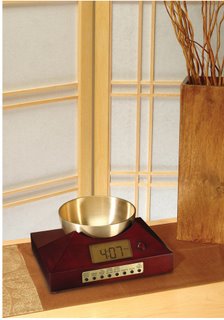 - bowl-gong alarm clock is an alternative to shrill alarm clocks
Now & Zen’s Bowl-Gong Alarm Clock Store
1638 Pearl Street
Boulder, CO 80302
(800) 779-6383
Posted in Bamboo Chime Clocks, Well-being, Zen Alarm Clock, Zen Timepiece by Now & Zen, Zen Timers
 Harunobu Suzuki, A girl Collecting Cchrysanthemum Dem by the Stream Culprit: The Blues
Research has indicated that people with depression may be four times more likely than the nondepressed to experience unexplained fatigue. Aerobic exercise—specifically, 30 minutes or more three to five days a week—is effective at treating mild to moderate depression, and may minimize the sleepiness associated with it. Set your Zen Timer for 30 minutes and try a few yoga poses in the comfort of your own home. If that doesn’t help, however, speak to your doctor, who may recommend talk therapy or a mood-boosting medication, like a selective serotonin re-uptake inhibitor (SSRI). If your depression and related fatigue seem to strike more frequently in winter, you could have seasonal affective disorder (SAD). Treatment for SAD may include using a special light box, says Marla Wald, a psychiatrist at Duke University Medical Center, in Durham, North Carolina. But venturing outside for about 20 minutes a day can provide similar benefits, she says.
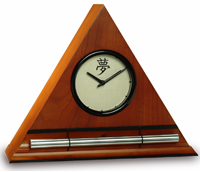 banish the blues by setting your zen timer Now & Zen Headquarter Store
1638 Pearl Street
Boulder, CO 80302
(800) 779-6383
Posted in Chime Alarm Clocks, mindfulness practice, Zen Alarm Clock, Zen Timepiece by Now & Zen
« Previous Entries
Next Page »
|
|
|
|